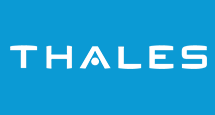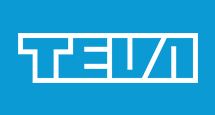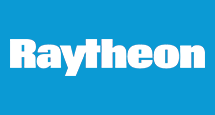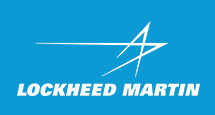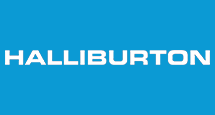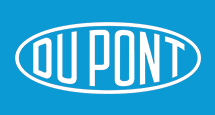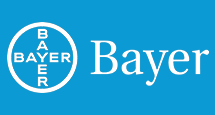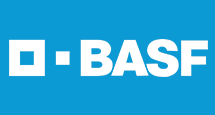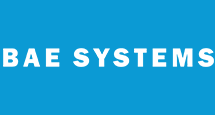Visiongain Publishes Artificial Intelligence (AI) in Oncology Market Report 2023-2033
22 June 2023
Visiongain has published a new report entitled Artificial Intelligence (AI) in Oncology Market Report 2023-2033: Forecasts by Product Type (Software, Hardware, Services), by Usage Type (Cancer Research, Pre-screening and Diagnosis, Treatment), by End-user (Pharmaceutical and Biopharmaceutical Companies, Research Institutes, Hospitals and Diagnostic Centres, Other), by Disease Type (Lung Cancer, Breast Cancer, Prostate Cancer, Colon Cancer, Other) AND Regional and Leading National Market Analysis PLUS Analysis of Leading Companies AND COVID-19 Impact and Recovery Pattern Analysis.
The Artificial Intelligence (AI) in Oncology market was valued at US$1,855.9 million in 2022 and is projected to grow at a CAGR of 43.6% during the forecast period 2023-2033.
Security and Privacy of Data Concerns Causes Significant Barriers
The effective use of AI algorithms in cancer is strongly reliant on access to enormous amounts of patient data, particularly sensitive medical information. However, in the healthcare industry, the privacy and security of this data have become key problems.
To safeguard patient privacy and safeguard their medical information, strict rules have been implemented, such as the Health Insurance Portability and Accountability Act (HIPAA) in the United States. While these laws are necessary to protect patient privacy, they also place limitations on the sharing and use of medical data, which makes it difficult for AI algorithms to obtain substantial datasets for analysis. Therefore, healthcare organizations and researchers face numerous challenges in handling patient data due to the sensitive nature of medical records. Unauthorized access, data breaches, and improper handling of patient data can lead to severe consequences, including legal implications, loss of patient trust, and compromised privacy.
As a result, healthcare organizations and AI developers must implement robust security measures, including encryption, access controls, and strict data governance protocols, to safeguard patient data. Compliance with data protection regulations, such as HIPAA and General Data Protection Regulation (GDPR), is crucial to maintain data privacy and build trust with patients. The challenges surrounding data privacy and security create barriers for AI implementation in oncology. Collaborative efforts between stakeholders, including policymakers, healthcare organizations, and technology providers, are necessary to establish comprehensive frameworks that address data privacy concerns while allowing responsible and ethical use of patient data for AI-driven advancements in oncology research and care.
What is the significant impact of COVID-19 on the AI in Oncology Market?
COVID-19 had a huge positive impact on the AI in cancer market, driving the increased adoption of AI technology. One prominent area of acceptance is the rising use of AI-powered telemedicine services, which enable remote care and consultations for cancer patients. These platforms have been critical in maintaining continuous care while reducing the potential of virus exposure. Furthermore, the epidemic has fuelled interest in AI-based oncology technologies, with an emphasis on cancer diagnosis, treatment planning, and remote patient monitoring. These AI-powered systems have the ability to provide personalised and optimised care even in the absence of actual consultations.
The diversion of healthcare resources to manage the pandemic, on the other hand, has created hurdles for AI programmes in oncology. The allocation of resources for AI development and deployment has been influenced, resulting in delays and limitations in AI-driven breakthroughs. Constraints in funding and infrastructure have hampered the rate at which AI can assist oncology. Furthermore, the pandemic's greater dependence on digital health tools has generated worries about data privacy and security. Because patient data utilised in AI algorithms is so sensitive, strong security measures are essential to preserve patient privacy. Addressing these concerns and maintaining compliance with data privacy requirements have proven to be significant barriers to the successful application of AI in oncology.
How will this Report Benefit you?
Visiongain’s 289-page report provides 123 tables and 163 charts/graphs. Our new study is suitable for anyone requiring commercial, in-depth analyses for the AI in oncology market, along with detailed segment analysis in the market. Our new study will help you evaluate the overall global and regional market for AI in oncology. Get financial analysis of the overall market and different segments including type, process, upstream, downstream, and company size and capture higher market share. We believe that there are strong opportunities in this fast-growing AI in oncology market. See how to use the existing and upcoming opportunities in this market to gain revenue benefits in the near future. Moreover, the report will help you to improve your strategic decision-making, allowing you to frame growth strategies, reinforce the analysis of other market players, and maximise the productivity of the company.
What are the Current Market Drivers?
Early Detection and Diagnosis Fuelling the Growth of AI in Oncology
AI has the capacity to analyse patient data, including medical records, to pinpoint individuals at high risk of developing cancer. Through this analysis, AI can detect patterns associated with increased cancer risk, such as family history and lifestyle factors. This aids healthcare providers in identifying patients who require additional screening or monitoring, facilitating early cancer diagnosis.
AI can also be used to analyse patient data, such as medical records, to identify patients who are at high risk for developing cancer. By analysing large amounts of patient data, AI can identify patterns that may indicate an increased risk of cancer, such as family history or lifestyle factors. This can help healthcare providers to identify patients who need further screening or monitoring, potentially leading to earlier cancer diagnosis. For instance, according to an article published in January 2023 by NCBI, the prognosis of colorectal cancer (CRC) significantly improves when detected at early stages. Screening plays a crucial role in reducing CRC-related mortality and incidence by facilitating early diagnosis and treatment. In fact, colonoscopy can contribute to a 90% risk reduction for CRC by enabling the identification of suspicious lesions in the intestinal walls. However, a challenge lies in ensuring healthcare providers possess the necessary understanding and confidence in the output of AI algorithms. Adequate knowledge and training are crucial for the effective interpretation and utilization of AI-generated insights.
AI Technology Breakthroughs have Improved Accuracy and Efficiency
AI algorithms have advanced tremendously in recent years, enabling more exact predictions and in-depth analysis of complicated data. Timely identification and accurate cancer diagnosis are critical for optimal treatment outcomes.
For instance, in 2020, a ground-breaking study published in The Lancet Digital Health used ML algorithms to analyse large amounts of data from over 6,000 lung cancer patients. The algorithms were extremely accurate in identifying which patient would benefit the most from immunotherapy, a highly effective but not universally applicable cancer treatment. This advancement enables more targeted and personalised treatment approaches.
Furthermore, the adoption of decision-assistant systems such as Watson for Oncology has showed notable concordance with multidisciplinary team decisions. Such technologies give significant help in patient-level decision making by providing a quick and efficient approach that minimises resources.
The development of unique algorithms capable of anticipating cancer surgery wait times has opened the way to personalised pre-rehabilitation strategies. By personalising therapies to individual patient needs, this technique has the potential to improve surgical results. This results in earlier detection, more informed treatment options, and better patient outcomes.
Where are the Market Opportunities?
Growing Demand for Remote Monitoring and Telemedicine
Remote monitoring systems equipped with AI capabilities allow healthcare providers to remotely track cancer patients' vital signs, symptoms, and treatment responses. This helps in detecting any potential complications or changes in the patient's condition, enabling timely interventions and personalized care. For example, a recent study published in JCO Clinical Cancer Informatics explored the use of remote monitoring and AI algorithms to monitor the side effects of chemotherapy in breast cancer patients
Telemedicine platforms have seen significant advancements in integrating AI technologies to enhance the quality of remote consultations. AI-powered chatbots and virtual assistants can assist patients in accessing information, answering basic queries, and providing guidance on symptom management. These platforms also facilitate remote communication between patients and healthcare providers, enabling efficient care delivery and reducing the need for in-person visits.
Competitive Landscape
The major players operating in the AI in oncology market are Azra AI, Intellogic LLC. (Botkin.AI), CloudMedx Inc. (CloudMedX), ConcertAI LLC. (ConcertAI), Digital Diagnostics Inc.(Digital Diagnostics), Enlitic Inc. (Enlitic), GE HealthCare Technologies Inc (GE HealthCare), Google LLC (Google Health), The International Business Machines Corporation (IBM Corporation), iCAD Inc. (iCAD), Intel Corporation (Intel), NVIDIA Corporation (NVIDIA), Owkin, Inc. (Owkin), Siemens Healthineers AG (Siemens Healthineers), Skin Vision B.V. (SkinVision), Therapixel SA (Therapixel). These major players operating in this market have adopted various strategies comprising M&A, investment in R&D, collaborations, partnerships, regional business expansion, and new product launch.
Recent Developments
• On 9th June 2023, GE Healthcare has announced a collaboration with RaySearch Laboratories AB (publ), a prominent provider of radiation oncology software, to create a new radiation therapy simulation and treatment planning workflow solution that would simplify how radiation is targeted to decrease a tumour. The firms hope to combine RaySearch's superior treatment planning systems with GE Healthcare's premier multi-modality (CT/MR/molecular imaging) simulator systems to accelerate and improve cancer therapy.
• On 1st June 2023, Caris Life Sciences (Caris), one of the leading molecular science, AI and ML technology companies announced an expanded translational sciences and clinical development solutions partnership with ConcertAI.
Notes for Editors
If you are interested in a more detailed overview of this report, please send an e-mail to contactus@visiongain.com or call +44 (0) 207 336 6100.
About Visiongain
Visiongain is one of the fastest-growing and most innovative independent media companies in Europe. Based in London, UK, Visiongain produces a host of business-to-business reports focusing on the automotive, aviation, chemicals, cyber, defence, energy, food & drink, materials, packaging, pharmaceutical and utilities sectors.
Visiongain publishes reports produced by analysts who are qualified experts in their field. Visiongain has firmly established itself as the first port of call for the business professional who needs independent, high-quality, original material to rely and depend on.


